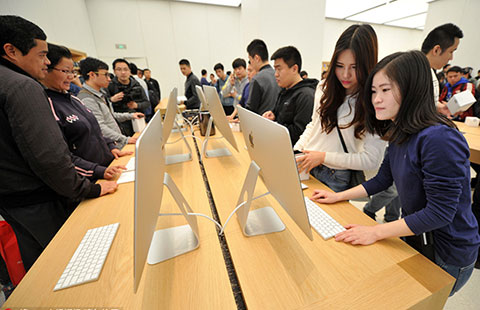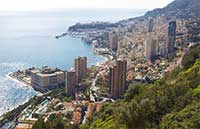Nobel laureate's new book debuts amid 'Mo-mania'
(Xinhua) Updated: 2012-10-17 15:14BEIJING -- A new book by the Nobel literature prize winner Mo Yan hit the Chinese market on Wednesday amid "Mo-mania" that has been sweeping the country since his success last week.
Only 100 copies of "Our Jing Ke", a collection of three plays, were on sale in the Genuine & Profound bookstore at a launch organized by the Beijing Genuine & Profound Culture Development Company.
The company, the only authorized publishing firm of the book on the Chinese mainland, also holds the rights to adapt some of Mo Yan's works into films.
"The first issue had a print run of 200,000 copies," said Tang Juan, the vice head of the company's marketing department. "But we only got the first batch last night and the others are still at the printers."
She said the new book, which is expected to be sold in other parts of the country after Friday, is being pre-ordered at leading online bookstores.
Around 3,000 copies have been ordered at Dangdang.com and over 2,000 at 360buy.com.
"One of my friends in Wuhan (central China) asked me to buy some copies for him," said Xiong Kui, a Beijing resident who was waiting in the cold outside the bookstore.
On the cover of the new book are the golden Nobel prize logo and the illustration of "by China's first Nobel Literature Prize winner Mo Yan".
Chen Wangzhi, marketing director of Beijing Genuine & Profound Culture Development Company, said the book will be a best-seller. "We will print more, altogether 300,000 to 500,000 copies at least," he said.
Chen said film companies had been contacting him to discuss the adaption of Mo's works, including "Big Breasts and Wide Hips" and "Frog", into films.
The release of the new book came less than a week after Mo was announced winner of the 2012 Nobel Prize in Literature on Oct 11.
"Due to Mo Yan's success, we decided to publish the book ahead of schedule," said Hong Xue, editor of the book.
Published by the Beijing-based New World Press, the book consists of three plays, including "Our Jing Ke", "Farewell to My Concubine" and "Wife of the Boiler Worker".
Two of them are based on tales of Chinese history and the third is about an ill-fated "zhiqing", urban youth who were sent to the countryside for "re-education" by peasants during China's "cultural revolution" (1966-76).
"Our Jing Ke" re-tells a story about Jing Ke, an assassin famous for his failed attempt to kill a king, who later moved on to become China's first emperor more than 2,000 years ago.
But the Chinese household story is told from a new perspective in the book, where Jing's assassination attempt is reinterpreted into a result of his desire for instant fame, rather than a result of chivalry and altruism.
- Victory Day parade helps Zhejiang CFMoto grow
- Chinese manufacturers strike upbeat note
- Jin Jiang 'weighs boosting Accor stake'
- Produce firm Sino Grandness plans HK listing of drinks unit
- China's soybean imports account for 90% of total demand
- ICBC says to continue to help money-laundering investigation
- IMF's upgrade signals global confidence in China's economic outlook
- UAE steps up financial cooperation with major Chinese banks

















